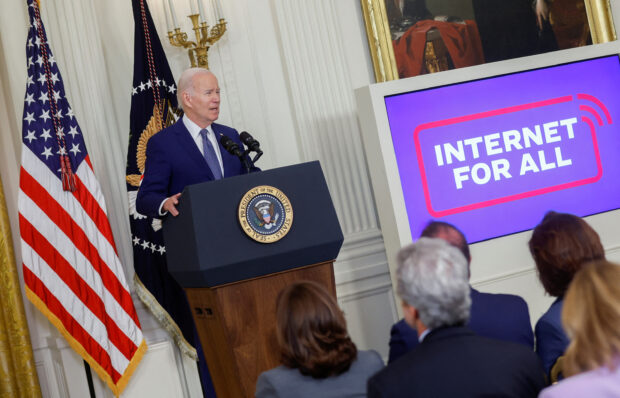
U.S. President Joe Biden has unveiled the Broadband Equity Access and Deployment (BEAD) program, a $42.45 billion initiative aimed at providing universal access to high-speed internet across all 50 states and U.S. territories by 2030. This announcement was made at the White House in Washington, D.C. on June 26, 2023, marking a significant milestone in President Biden’s economic policies.
The funding for this program comes from the $1 trillion infrastructure law that President Biden advocated for and was passed in 2021. The allocation of funds will be based on a newly released map by the Federal Communications Commission, which identifies gaps in internet access coverage.
The top recipients of funding are the two most populous states in the U.S., Texas and California, receiving $3.1 billion and $1.9 billion, respectively. Surprisingly, smaller states like Virginia, Alabama, and Louisiana also made it to the top 10 list of funding recipients due to their limited broadband access in rural areas compared to their urban counterparts.
During a White House address, President Biden emphasized the significance of this investment in high-speed internet, stating that internet access is as crucial as other essential services like electricity and water in today’s economy.
The funding awards range from $27 million for U.S. territories like the U.S. Virgin Islands to over $3.3 billion for Texas, ensuring that every state receives a minimum of $107 million. This announcement also marks the beginning of President Biden’s nationwide tour, where he aims to highlight the impact of legislation passed during his tenure as the 2024 re-election campaign approaches. As part of this tour, President Biden is scheduled to deliver a major economic speech in Chicago on Wednesday, outlining the principles and goals of his economic policies, referred to as “Bidenomics.”
However, public opinion regarding President Biden’s handling of the economy is mixed. According to a recent poll conducted by Reuters/Ipsos, 54 percent of Americans disapprove of his performance, while only 35 percent approve. With the upcoming 2024 election, the state of the economy will undoubtedly be a key factor in determining President Biden’s success.
The lack of broadband access has been particularly problematic during the COVID-19 pandemic, as students were forced into online learning without adequate connectivity. Broadband companies, such as Verizon, Comcast, Charter Communications, and AT&T, have been hesitant to invest in low-population rural areas due to the high costs involved and the limited number of potential subscribers.
States will be required to submit initial plans later this year, unlocking 20 percent of the funding. The remaining funds will be released once the plans are finalized, which is expected to be by 2025.
In conclusion, President Biden’s BEAD program represents a significant step towards bridging the digital divide and ensuring universal access to high-speed internet across the United States. The allocation of funds aims to address the disparities in broadband access between urban and rural areas, allowing for more equitable economic opportunities and educational resources for all Americans.
Denial of responsibility! SamacharCentrl is an automatic aggregator of Global media. In each content, the hyperlink to the primary source is specified. All trademarks belong to their rightful owners, and all materials to their authors. For any complaint, please reach us at – [email protected]. We will take necessary action within 24 hours.

Omprakash Tiwary is a business writer who delves into the intricacies of the corporate world. With a focus on finance and economic landscape. He offers readers valuable insights into market trends, entrepreneurship, and economic developments.

